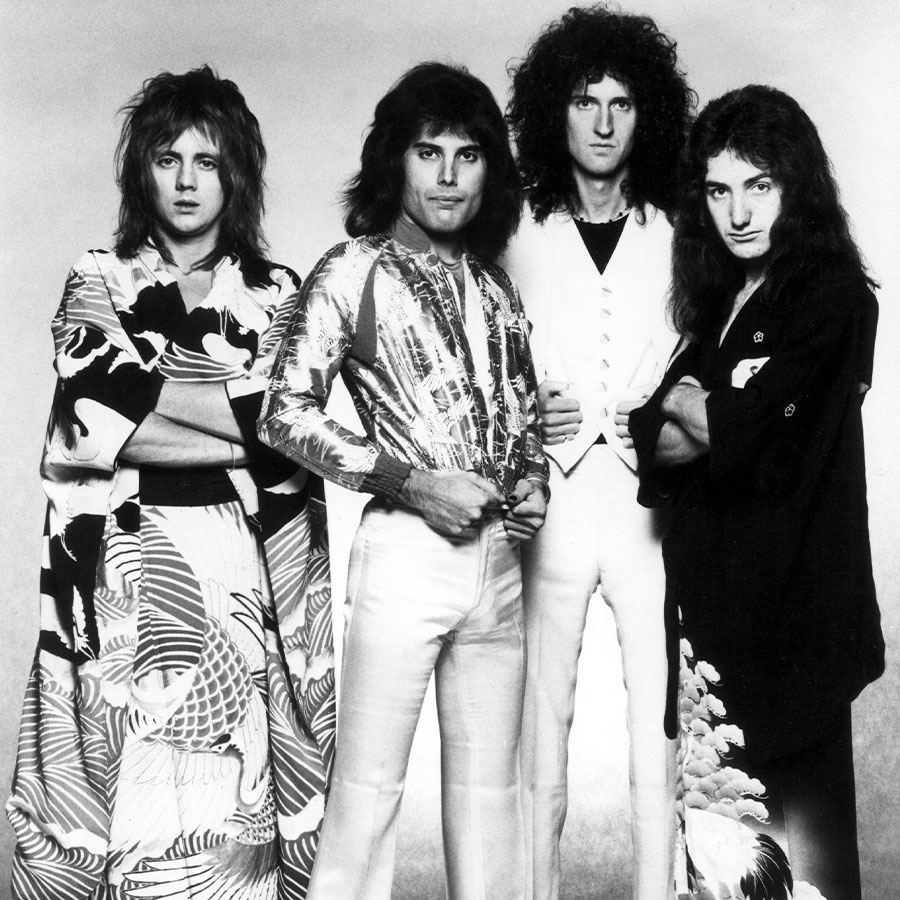Queen Song ‘Fat Bottom Girls’ Sparks Debate After Children’s Streaming Platform Yoto Leaves It Off Greatest Hits Album

Queen, left to right: Roger Taylor, John Deacon, Brian May and Freddie Mercury in the late 1970s. Their hit song "Fat Bottomed Girls" recently became the focal point of a debate over music censorship. Photo: Everett Collection/Canadian Press
Queen’s devoted fan base, as well as detractors of things they believe are “woke,” supporters of body positivity and, more generally, people who don’t read past the headline on social media, were all worked up this week as news broke that “Fat Bottomed Girls” would be left off a new release of the band’s Greatest Hits.
Of course, omitted from most headlines is that the platform leaving the cheeky tune off their version of the collection is Yoto, a streaming device specifically designed to keep children aged nine and under engaged without the use of screens.
Included in many of the stories was a quote from an unnamed music industry professional calling the snub “woke gone mad.”
“It is the talk of the music industry, nobody can work out why such a good-natured, fun song can’t be acceptable in today’s society,” the unnamed source originally quoted by The Daily Mail said of the platform’s decision.
Good-natured, maybe, but the 1978 song’s musings about a “naughty nanny” with a “big fat fanny” who “made a bad boy out of me” doesn’t exactly jibe with the streaming service’s content, which includes games, music and podcasts from children’s entertainers, Disney and popular kids shows like Paw Patrol.
And, considering the Queen album is part of Yoto’s first foray into mainstream music amid a divisive social climate, it’s hard to blame the company for treading lightly.
“It’s the ideal introduction to the music of Queen for young music lovers and the perfect soundtrack to kitchen dance parties, road trip singalongs, bedtime air guitar sessions … and much much more,” the platform said of the release on its website, before adding a disclaimer for the rest of the album.
“Please note that the lyrics in some of these songs contain adult themes, including occasional references to violence and drugs. These are the original and unedited recordings. Whilst no swear words are used parental discretion is advised when playing this content to or around younger children.”
According to the website Music Week, further releases from Bob Marley and the Wailers and partner labels, including Motown Records and Disney Music Group, are set to hit the platform in the coming months.
“Research consistently shows that music plays a crucial role in a child’s development, stimulating their creativity, enhancing cognitive abilities, teaching language and creating social bonds,” Yoto co-founder and CEO Ben Drury told Music Week. “This new partnership with Universal Music Group helps us access their extraordinary catalogue so we can now offer kids an even richer and more diverse audio experience.”
Despite the platform’s best intentions, X (formerly known as Twitter) users piled on criticism.
“They say Fat Bottomed Girls is too raunchy,” a user named Hodgetwins said. “I’m sure WAP is just fine though.” Of course, the sexually-charged Cardi B tune is not included on Yoto either.
Another user turned it into a generational debate.
“Fat Bottom Girls is offensive?” a tweet from a user named Phil Labonte read. “This is all cause of the f&%$ing millennials.”
But, Yoto’s move isn’t born out of “wokeness” or cancel culture or anything new for that matter.
Some of the most popular songs of the 1950s, ‘‘60s and ‘70s have faced censorship bans over concerns about their influence on younger listeners. Notable examples include the Everly Brother’s 1958 hit “Wake Up Little Susie,” The Beatles’ 1968 song “Happiness Is a Warm Gun” and Donna Summer’s 1975 single “Love to Love You, Baby” — all of which were pulled off the air over their sexually suggestive lyrics.
Then there was the work of the Parents Music Resource Center, an American committee formed in 1985 with the goal of increasing parental control over music containing violent, drug-related, or sexual themes. The committee’s founding members were nicknamed “The Washington Wives” for their husband’s political connections and most famously included Tipper Gore, wife of Senator and later Vice-President Al Gore. With hopes of creating a rating system similar to motion pictures (from G to R), they assembled a list of songs that demonstrated each of their proposed designations, which were “X” for profane or sexually explicit lyrics, “O” for occult references, “D/A” for lyrics about drugs and alcohol and “V” for violent content.
The roster of songs, later dubbed the “Filthy Fifteen,” included Prince’s “Darling Nikki,” rated O, Def Leppard’s “High and Dry,” rated D/A, and Venom’s “Possessed,” which of course would have received the O rating if the committee had gotten its way. Instead, in 1987, the Recording Industry Association of America would land on the “Parental Advisory: Explicit Content” sticker, the general warning we see slapped on many album covers today.
So, all in all, Yoto was simply engaging in some good old-fashioned censorship. And if that means more kids will grow up hearing legendary bands like Queen alongside their favourite Disney hits, what’s the harm?
After all, they can always learn about how “fat bottom girls … make the rockin’ world go round” once they graduate to Spotify.
RELATED: